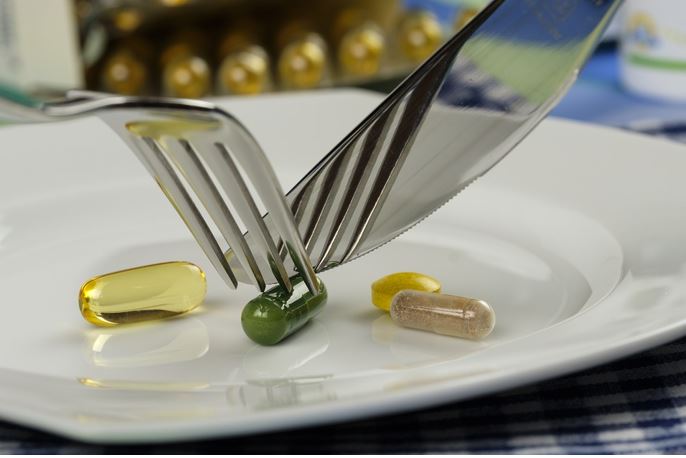 There are two reasons why most medical professionals reluctantly recommend supplements to diabetic patients. First, there are no distinct studies about supplements’ long-term safety to people yet, how much more to people with diabetes. Second, with a healthy lifestyle, no supplements are as effective in controlling blood sugar as medications for diabetes.
There are two reasons why most medical professionals reluctantly recommend supplements to diabetic patients. First, there are no distinct studies about supplements’ long-term safety to people yet, how much more to people with diabetes. Second, with a healthy lifestyle, no supplements are as effective in controlling blood sugar as medications for diabetes.
Nevertheless, there are specific supplements that can make a notch or two in preventing risks of heart disease and blood sugar, which are two of the most common and life-threatening diabetes complications. Here is a list of supplements to add in one’s diabetes treatment plan.
1. Omega 3-s
Not only trout, salmon, sardines, and herring are considered heart-healthy, but also fish oil capsules—supplements made from algae and algal oil. One study revealed that diabetic patients who had taken fish oil supplements decreased their levels of triglycerides, which are the unhealthy blood fat in one’s body.
Fish oils are primarily made of omega-3s, which can prevent artery clogging, off-rhythm heartbeats, and inflammations. Two principal omega-3 fatty acids are eicosapentaenoic acid (EPA) and docosahexaenoic acid (DHA).
The American Heart Association (AHA) recommended that every person should have omega-3s from two or more servings of fish every week. If you do not prefer eating fishes, have 2,200 mg of EPA and DHA every week from supplements. Avoid getting overdosed. Overdosing may raise blood sugar, as well as the levels of artery-clogging LDL cholesterol.
2. Vitamin D
Tufts Medical Center researchers reported that having 500 international units (IU) of Vitamin D may lessen the risks of having diabetes by 13 percent. However, before anything else, get a blood test of your Vitamin D levels first and consult a doctor.
3. Magnesium
Most people with diabetics are usually low in magnesium, which may affect the ability to use insulin. Moreover, too much magnesium is not healthy, as well. Kidney damage is very common to diabetes. If this is the case, your magnesium level may already be too high. Excessive magnesium can cause irregular heartbeat and low blood pressure.
It is best to check magnesium levels with a doctor first before taking supplements. Typically, a person only needs a combination of multivitamin with 100 mg magnesium and a diet with plenty of servings of whole grains and leafy vegetables.
The tolerable upper intake level (UL) of magnesium in a supplement is 350 mg. The recommended dietary allowance (RDA) of magnesium to specific people are the following:
- 400 mg daily for men aging 19 to 30 years old;
- 420 mg daily for men aging 31 years old or so;
- 310 mg daily for women aging 19 to 30 years old; and
- 320 mg daily for women aging 31 years old or so.
4. Psyllium
Supplements with Psyllium are well-known for lowering cholesterol. It contains soluble fibers that can slow down the natural increase in blood sugar after finishing a meal. Hence, adding psyllium on meals is beneficial if you are not getting adequate fiber on your diet.
It is recommended to have about three grams of soluble fiber every day. That is an equivalent of three teaspoons of psyllium (powdered). Every 20 or 30 minutes before a meal, drink a cup of psyllium. To do so, mix one teaspoon of psyllium in a cup of 8 oz/250 ml water.
5. Cinnamon
Cinnamon is another seasoning that can reduce blood pressure aside from chili peppers, according to researchers “capsaicin, have reams of studies supporting their role in thermogenesis”. Also, chalconoids called hydroxychalcone derived from cinnamons can activate insulin receptors on cells, improving one’s ability to absorb blood sugar.
Researchers from the University of California–Davis discovered that approximately half to one teaspoon of cinnamon daily might decrease fasting blood sugar levels. It is recommended to have a 500 mg cinnamon supplement daily, or a half to one teaspoon of powdered cinnamon each day.
6. Alpha-Lipoic Acid
Often, people with diabetes suffer from diabetes-related nerve damage, resulting in pains in fingers, toes, or feet. Alpha-lipoic acid (ALA) may help nerves to be less subtle to pain. Studies revealed that ALA could neutralize increasing cell-damaging free radicals associated with high blood sugar, slowing down diabetic neuropathy.
A 600 mg supplement of ALA daily may respond to someone’s tingling, stabbing or burning pain, and can even prevent further nerve damage from happening. Brussels sprouts, broccoli, peas, rice bran, and tomatoes are other alternatives to supplements, yet still, they contain an ample amount of ALA.
Takeaway
Many people believed that other diabetes-friendly supplements cans still smack down high blood sugar. However, science has been continually evolving. There are many supplements like fenugreek, chromium, and bitter melon, which are all promising before but are not recently living up to their reputations, now becoming myths that can sabotage one’s health.

